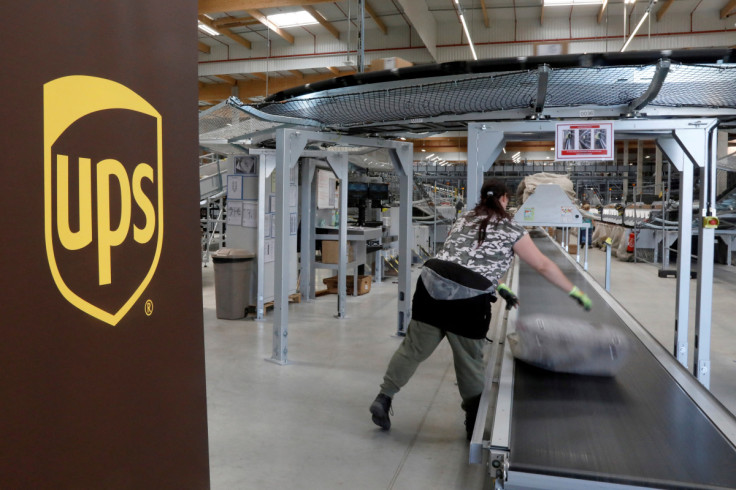Looming UPS Strike Raises Concerns Over Supply Chain Disruptions Amid Contract Negotiations
KEY POINTS
- The union demands less overtime, air conditioning in delivery trucks and changes to pay scales
- The International Brotherhood of Teamsters represents 340,000 UPS employees
- UPS ships approximately 24 million packages daily on average
Thousands of UPS workers across the nation will vote this week to decide whether to strike if their union could not reach a contract with UPS management.
Millions of Americans rely on UPS for their delivery service. A potential strike would bring the world's biggest package courier to a standstill, severely upending the U.S. supply chain.
The UPS employees are demanding less overtime, air conditioning in delivery trucks and changes to pay scales.
"The time has come to use our strongest leverage and officially remind UPS that hundreds of thousands of Teamsters are ready to withhold our labor to ensure UPS acts accordingly," said Sean M. O'Brien, general president of the labor union International Brotherhood of Teamsters, reported BoroPark24. "The National Committee strongly urges all UPS Teamsters to vote YES to authorize a strike. This is how we win."
The vote results will be announced on June 16. Strike authorization votes are common during contract negotiations and they almost always get approved, according to CNN.
The International Brotherhood of Teamsters represents 340,000 UPS employees – more than half of UPS's total global workforce of 534,000, including drivers and package organizers.
A strike by UPS workers would gravely disrupt daily economic activities across the nation. UPS ships approximately 24 million packages daily on average, according to shipping and logistics firm Pitney Bowes. It is equivalent to about 6% of the nation's gross domestic product, The Associated Press reported.
During the pandemic, the Atlanta-based company's annual profits grew at least three times what it was before the COVID-19 crisis. Last year, it made about $8.6 billion in the form of dividends and stock buybacks.
Earlier this year, dozens of UPS workers held a meeting with Teamsters leadership. "We're going into these negotiations with a clear message to UPS that we're not going past August 1," O'Brien told the gathering at the time.
Meanwhile, UPS CEO Carol Tomé assured investors that the company and the union are close to reaching an agreement on major issues.
"While we expect to hear a great deal of noise during the negotiation, I remain confident that a win-win-win contract is very achievable and that UPS and the Teamsters will reach an agreement by the end of July," Tomé said.
The contract talks began in April. While a deal was reached on some important issues, including "operating priorities, the use of technology and in-vehicle camera," last month, discussions are going on other issues.
If the employees decide to strike, it would be the first major operational halt at UPS since a walkout by 185,000 workers in 1997, which went on for more than two weeks before a new contract agreement was reached.
If the union manages to reach an agreement on its demands, it could have huge implications for organized labor outside the company. There have been massive labor organization campaigns at various companies, including Amazon, Apple and Starbucks. Strippers at a dance club in Los Angeles voted to unionize last month.
"This has just huge implications for the entire labor movement in the United States," said John Logan, the director of labor and employment studies at San Francisco State University. "There's greater assertiveness and militancy on the part of a lot of young labor activists and some sectors of the labor establishment."

© Copyright IBTimes 2024. All rights reserved.






















